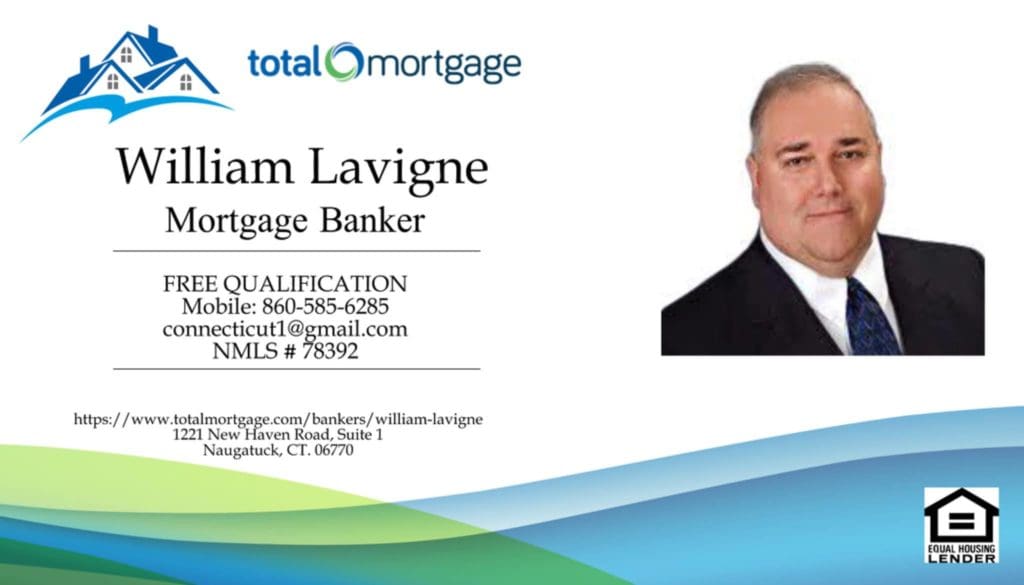Buying a foreclosed home can be a rewarding opportunity for homebuyers looking to snag a property at a potentially lower price. However, the process of purchasing a foreclosed property differs from a traditional home purchase. In this blog post, we’ll walk you through the steps and considerations involved in buying a foreclosed home, ensuring you navigate this unique real estate venture with confidence.
203-994-3950 Email
Here is How to Buy a Foreclosed Home:
Step 1: Understand What a Foreclosed Home is:

What is a Foreclosed Home? A foreclosed home, also known as a foreclosure, is a property that has been reclaimed by the lender or bank due to the homeowner’s failure to make mortgage payments. When a homeowner becomes delinquent on their mortgage, the lender has the legal right to initiate foreclosure proceedings to recover the outstanding debt.
Demystifying Foreclosed Homes: Understanding the Ins and Outs
In the realm of real estate, the term “foreclosed home” is often mentioned, but its true meaning and implications may remain unclear to many. Whether you are a prospective homebuyer, an investor, or simply curious about the real estate market, this blog post aims to shed light on what a foreclosed home is and the unique aspects associated with these properties.
How Does the Foreclosure Process Work?
- Missed Payments: The foreclosure process typically begins when a homeowner misses several mortgage payments. The exact number of missed payments required to trigger foreclosure varies based on state laws and the mortgage agreement.
- Pre-Foreclosure Period: During the pre-foreclosure period, the homeowner may have the opportunity to avoid foreclosure by catching up on missed payments or negotiating with the lender for alternatives such as loan modifications or short sales.
- Foreclosure Auction: If the homeowner is unable to resolve the delinquency, the property may proceed to a foreclosure auction. Foreclosure auctions are public sales where the property is sold to the highest bidder.
- Real Estate Owned (REO) Properties: If the property fails to sell at auction, it becomes a real estate owned (REO) property or bank-owned property. In this case, the lender takes ownership of the property and offers it for sale through a real estate agent or brokerage.
Unique Aspects of Foreclosed Homes:
- Price Advantage: Foreclosed homes are often priced below market value. Lenders are motivated to sell these properties quickly to recoup their investment, making them attractive to bargain-seeking buyers.
- Condition Varies: Foreclosed homes are typically sold as-is, meaning the buyer assumes responsibility for any necessary repairs or renovations. It’s essential to conduct a thorough inspection before purchasing a foreclosed property.
- Risks and Challenges: Foreclosure properties may come with liens or other legal issues that buyers need to be aware of. Proper due diligence is crucial to ensure a clear title and a smooth transaction.
- Competition: Due to their lower prices, foreclosed homes can attract multiple offers, leading to competition among potential buyers.
Conclusion:
A foreclosed home is a property that has been repossessed by the lender due to the homeowner’s inability to make mortgage payments. The foreclosure process can lead to a public auction or result in the property becoming bank-owned. Understanding the unique aspects and potential advantages and challenges of foreclosed homes is essential for anyone considering buying or investing in these properties. If you’re interested in purchasing a foreclosed home, working with a knowledgeable real estate agent and conducting thorough research can help you navigate the process successfully and make an informed decision.
Step 2: Research and Identify Potential Properties:
 Unearthing Hidden Gems: How to Research and Identify Potential Foreclosed Properties. The quest for a new home or investment property often begins with research and exploration. When considering foreclosed homes, this process becomes even more crucial, as these hidden gems can present unique opportunities for buyers and investors. In this blog post, we’ll delve into the art of researching and identifying potential foreclosed properties, equipping you with the tools to unearth your ideal real estate investment.
Unearthing Hidden Gems: How to Research and Identify Potential Foreclosed Properties. The quest for a new home or investment property often begins with research and exploration. When considering foreclosed homes, this process becomes even more crucial, as these hidden gems can present unique opportunities for buyers and investors. In this blog post, we’ll delve into the art of researching and identifying potential foreclosed properties, equipping you with the tools to unearth your ideal real estate investment.
Utilize Online Resources:
The digital age has revolutionized the way we search for real estate opportunities. Numerous online platforms and real estate websites curate comprehensive foreclosure listings, making it easier than ever to find potential properties. Utilize these resources to search for foreclosed homes in your desired location.
Partner with a Knowledgeable Real Estate Agent:
Working with a real estate agent who specializes in foreclosures can be a game-changer. An experienced agent like Steve Schappert will have access to exclusive listings, market insights, and a deep understanding of the foreclosure process. Their expertise can guide you towards properties that align with your criteria and goals.
Set Clear Criteria:
Before diving into the sea of foreclosed listings, set clear criteria for the type of property you seek. Consider factors such as location, size, condition, budget, and potential for future growth. Having a well-defined vision will help narrow down your options and save time during your search.
Conduct Thorough Research:
Each foreclosed property has its unique history and context. Research the property’s background, including its foreclosure history, past sales, and any liens or encumbrances. Understanding these details will help you make informed decisions during the purchasing process.
Evaluate Neighborhood and Amenities:
A property’s value is often influenced by its location and proximity to amenities. Research the neighborhood, schools, transportation options, and local facilities to ensure the area aligns with your lifestyle and long-term goals.
Attend Foreclosure Auctions (if applicable):
For those willing to brave the excitement of a foreclosure auction, attending in person or online can lead to great opportunities. However, be prepared to act quickly, as auctions move swiftly, and winning bids are binding.
Perform Physical Inspections:
Once you identify potential properties, schedule physical inspections to evaluate their condition. Foreclosed homes are typically sold “as-is,” and thorough inspections will reveal any necessary repairs or renovations.
Consider Financing Options:
Research financing options available for foreclosed homes. Some properties may require specific loan types, and having a clear understanding of your financial capabilities will streamline the purchasing process.
Conclusion:
Researching and identifying potential foreclosed properties requires diligence, market awareness, and a clear vision of your real estate goals. Online resources, the guidance of a knowledgeable real estate agent, and thorough research are invaluable tools in uncovering these hidden gems. Remember to set your criteria, assess each property’s background, evaluate the neighborhood, and conduct inspections. With careful research, you’ll be well-equipped to make sound decisions and secure a foreclosed property that aligns with your aspirations and investment objectives. Happy hunting!
Step 3: Get Pre-Approved for Financing:
Securing Your Dream: The Importance of Mortgage Pre-Approval When Buying a Foreclosed Home. The journey of purchasing a foreclosed home is filled with excitement and potential, but it also requires strategic planning and financial readiness. One crucial step in this process is obtaining a mortgage pre-approval. In this blog post, we’ll explore why mortgage pre-approval is essential when buying a foreclosed home and how it positions you as a serious buyer with the financial capability to close the deal.
Demonstrates Serious Intent:
Mortgage pre-approval showcases your serious intent to buy a foreclosed home. When dealing with foreclosure properties, sellers and lenders seek committed buyers who can swiftly move forward with the transaction. Pre-approval communicates that you have already taken the necessary steps to secure financing, making you a more attractive candidate in a competitive market.
Streamlines the Buying Process:
Pre-approval streamlines the home-buying process. With your financing in place, you can act swiftly when you find the right foreclosed property. This can be crucial in a fast-paced market where foreclosed homes often attract multiple offers. Your preparedness enables you to make a strong offer without delay.
Know Your Budget:
Obtaining mortgage pre-approval provides clarity on your budget. Lenders will assess your financial situation, creditworthiness, and income to determine the loan amount you are eligible for. Armed with this information, you can confidently focus on foreclosed properties that align with your budget and avoid wasting time on homes that are outside your financial reach.
Negotiating Power:
Having pre-approval can enhance your negotiating power. Sellers are more likely to consider offers from pre-approved buyers as they offer greater certainty of a successful transaction. In competitive markets, this can be a game-changer, especially when dealing with foreclosed properties that may receive multiple offers.
Identifying Potential Issues:
The pre-approval process allows you to identify and address any potential issues with your credit or finances early on. If there are any discrepancies or issues, you’ll have time to rectify them before making an offer on a foreclosed home, preventing last-minute obstacles that could jeopardize the purchase.
Confidence and Peace of Mind:
Knowing that you are pre-approved for a mortgage gives you confidence and peace of mind throughout the home buying process. You can focus on exploring foreclosed properties, making informed decisions, and envisioning your future in your dream home without worrying about the financing aspect.
Conclusion:
Obtaining mortgage pre-approval is a crucial step in the process of buying a foreclosed home. It not only demonstrates your serious intent and financial capability to sellers but also streamlines the buying process and enhances your negotiating power. Pre-approval provides clarity on your budget and allows you to focus on foreclosed properties that align with your financial goals. Additionally, it provides an opportunity to identify and address any potential financial issues early on. With mortgage pre-approval in hand, you can embark on your journey to secure a foreclosed property with confidence, knowing you are well-prepared to turn your dream of homeownership into reality.
Step 4: Work with a Real Estate Agent Experienced in Foreclosures:
Your Trusted Guide: Why Engaging a Real Estate Agent with Foreclosure Expertise is Essential. The process of buying a foreclosed home can be a maze of unique challenges and opportunities. Navigating this complex terrain requires the expertise of a seasoned professional who understands the intricacies of dealing with foreclosed properties. In this blog post, we’ll explore why engaging a real estate agent with experience in foreclosures is essential and how their guidance can be a game-changer in your pursuit of the perfect foreclosed home.
In-Depth Knowledge of Foreclosure Process:
Real estate agents specializing in foreclosures possess in-depth knowledge of the foreclosure process, from pre-foreclosure to auction and bank-owned properties (REOs). They understand the legal procedures, timelines, and paperwork involved, ensuring that you are well-informed and prepared at every stage.
Access to Exclusive Listings:
Foreclosure experts often have access to exclusive listings that might not be readily available to the general public. These listings can include off-market properties, giving you an edge in finding hidden gems that meet your criteria.
Expert Negotiation Skills:
Negotiating with banks, lenders, or auction organizers requires a unique skill set. A real estate agent experienced in foreclosures will possess expert negotiation skills to help you secure the best deal possible, whether it’s during the auction process or while dealing with banks for REO properties.
Insights into Property Condition:
Foreclosed homes are typically sold “as-is,” and their condition may vary widely. A foreclosure-savvy agent can help you assess the condition of potential properties, identifying potential repairs or renovation costs. This information is crucial in making an informed decision and avoiding unforeseen expenses.
Understanding Market Value:
Accurately assessing the market value of a foreclosed property can be challenging due to various factors, including distressed conditions and market fluctuations. An experienced agent can conduct thorough market analyses, ensuring you don’t overpay for a property while still securing a competitive deal.
Expertise in Auction Process:
Auctions are fast-paced and require quick decisions. An agent well-versed in auction procedures can guide you through the process, helping you navigate bidding strategies and maximizing your chances of success.
Handling Legalities and Paperwork:
Foreclosure transactions involve complex legalities and paperwork. Having a knowledgeable agent by your side can ensure that all necessary documentation is handled accurately and efficiently, avoiding potential delays or issues.
Personalized Guidance:
Every buyer’s journey is unique, and a foreclosure expert will provide personalized guidance tailored to your specific needs and goals. Whether you’re a first-time homebuyer, an investor, or looking for a vacation property, they’ll cater their approach to meet your individual requirements.
Conclusion:
Engaging a real estate agent with experience in dealing with foreclosed properties is an invaluable step in your quest to find the perfect foreclosed home. Their in-depth knowledge of the foreclosure process, access to exclusive listings, and expert negotiation skills will streamline your search and enhance your chances of securing a competitive deal. With their guidance, you’ll navigate the unique aspects of buying a foreclosed home with confidence, knowing you have a trusted guide by your side. Take advantage of their expertise and embark on your journey to find the ideal foreclosed property, turning your real estate aspirations into reality.
Step 5: Conduct a Home Inspection:
Unveiling the Hidden Truth:
The Importance of Home Inspections When Buying a Foreclosed Property.
The allure of purchasing a foreclosed property lies in the potential for great value and investment opportunities. However, beneath the surface, these properties may harbor hidden issues that could turn a dream deal into a costly nightmare. In this blog post, we’ll explore the significance of conducting thorough home inspections when buying a foreclosed property, uncovering the truth behind the walls and ensuring you make an informed decision.
Revealing Structural Issues:
Foreclosed properties may have experienced neglect or deferred maintenance, leading to potential structural issues. A comprehensive home inspection conducted by a licensed professional can identify underlying problems such as foundation cracks, roof damage, plumbing issues, or electrical concerns. Knowing these issues in advance allows you to make an informed decision about the property’s condition and the potential cost of repairs.
Assessing Repairs and Renovation Costs:
Understanding the true state of a foreclosed property through a home inspection enables you to estimate repair and renovation costs accurately. Armed with this knowledge, you can assess whether the investment aligns with your budget and long-term goals. It also empowers you to negotiate a fair purchase price, considering any necessary repairs.
Uncovering Safety Hazards:
A home inspection helps to identify safety hazards that may pose risks to future occupants. This could include mold infestations, asbestos, lead-based paint, or faulty wiring. By detecting these hazards early on, you can take appropriate measures to address them or factor them into your decision-making process.
Negotiation Leverage:
A detailed inspection report can serve as a valuable negotiation tool. If the inspection reveals significant issues, you can use this information to negotiate a lower purchase price or request that the seller address certain repairs before finalizing the deal.
Understanding the Property’s True Value:
Foreclosed properties are typically sold “as-is,” which means the seller is not obligated to make any repairs. A home inspection helps you understand the property’s true value by considering both its positive attributes and any issues uncovered during the inspection. This knowledge ensures that you don’t overpay for a property that requires substantial repairs.
Peace of Mind for Investment:
If you’re purchasing a foreclosed property as an investment, a thorough home inspection provides peace of mind. Knowing the property’s condition and potential costs upfront allows you to make an informed decision about its potential for future profitability.
Conclusion:
When purchasing a foreclosed property, due diligence is paramount. A thorough home inspection conducted by a qualified professional can unveil the hidden truths behind the walls, revealing any structural issues, necessary repairs, or safety hazards. Armed with this information, you can make an informed decision about the property’s condition and the potential costs involved. The inspection report also serves as a valuable negotiation tool, ensuring you secure the best deal possible. Don’t overlook the importance of a home inspection when buying a foreclosed property. It is your key to unlocking the full picture of the property’s condition and empowering you to make a sound investment decision.
Step 6: Research Liens and Encumbrances:
Clear Title, Clear Path: The Significance of a Title Search When Buying a Foreclosed Property. As you near the final stages of purchasing a foreclosed property, it’s crucial to embark on one last investigative journey to ensure a smooth and secure transaction. A title search plays a pivotal role in this process, helping you uncover any potential legal issues that may impact your ownership rights. In this blog post, we’ll explore the importance of conducting a title search before finalizing the purchase of a foreclosed property, ensuring that you acquire a clear title and a clear path to your real estate dreams.
Uncovering Outstanding Liens and Encumbrances:
A title search delves into the property’s history, unearthing any outstanding liens or encumbrances that may have been attached to the property by previous owners. Liens can include unpaid taxes, mortgages, mechanic’s liens, or homeowner association fees. Identifying these issues early on allows you to address them before closing the deal, preventing potential legal disputes or financial burdens.
Ensuring Valid Ownership Rights:
A title search verifies the legitimacy of the property’s ownership rights. It confirms that the foreclosed property is indeed being sold by the rightful owner or authorized entity, giving you the confidence that the transaction is valid and legally binding.
Securing Your Investment:
By conducting a thorough title search, you protect your investment from unexpected surprises. Discovering any clouds on the title before completing the purchase gives you the opportunity to resolve these issues or walk away from the deal if necessary.
Title Insurance Protection:
Lenders and buyers typically require title insurance to safeguard against any unforeseen title issues that may arise in the future. A title search enables the title insurance company to assess the property’s title history and offer coverage that protects you from potential financial losses related to title defects.
Streamlining the Closing Process:
Resolving any title issues before the closing date streamlines the process and helps ensure a smooth and efficient transaction. A clear title reduces the risk of delays and provides you with the confidence to move forward with the purchase.
Peace of Mind:
A clear title gives you peace of mind, knowing that your ownership rights are secure and that you are acquiring a property free from legal encumbrances. It allows you to focus on the excitement of homeownership or your investment goals without lingering concerns about title-related complications.
Conclusion:
Conducting a title search is a critical step in the process of buying a foreclosed property. It enables you to uncover any outstanding liens or encumbrances, verify ownership rights, and secure your investment. Title insurance further protects you from unforeseen title defects in the future. By completing a title search before finalizing the purchase, you ensure a smooth and secure transaction, paving the way for a future of homeownership or successful real estate investment. Take the time to perform a title search, and you’ll acquire not only a clear title but also the peace of mind to embark on this new chapter of your real estate journey confidently.
Step 7: Prepare Your Offer:

Navigating the Competition: Crafting a Winning Offer for a Foreclosed Home. In the world of real estate, buying a foreclosed home can be a thrilling opportunity to secure a property at a potentially lower price. However, the allure of foreclosure properties also attracts a wave of competition from eager buyers. To stand out in this competitive landscape, it’s crucial to work closely with your real estate agent to prepare a compelling offer that aligns with your budget. In this blog post, we’ll explore the art of crafting a winning offer for a foreclosed home, ensuring you seize the opportunity to turn your real estate dreams into reality.
Understand the Local Market:
Begin by gaining a comprehensive understanding of the local market and recent sales of comparable foreclosed properties. This knowledge will help you determine a reasonable offer price, taking into account the property’s condition and location.
Consult Your Real Estate Agent:
Your real estate agent is your greatest ally in crafting a compelling offer. Rely on their expertise to evaluate the property’s value, assess the current market conditions, and determine an appropriate offering price.
Act Swiftly and Decisively:
Foreclosed properties can attract multiple offers, so time is of the essence. Work closely with your agent to submit your offer promptly and avoid unnecessary delays. Being decisive and acting swiftly will demonstrate your serious intent to the seller.
Price Wisely and Competitively:
While it’s essential to present a competitive offer, it’s equally important to remain within your budget. Striking the right balance between a compelling bid and staying financially responsible is key.
Be Mindful of Contingencies:
Limiting the number of contingencies in your offer can make it more attractive to the seller. A clean and straightforward offer may be more appealing, especially when compared to offers loaded with numerous conditions.
Provide Proof of Funds or Pre-Approval:
Including proof of funds or a pre-approval letter from your lender with your offer adds credibility to your bid. It assures the seller that you have the financial means to complete the transaction, making your offer more reliable.
Show Flexibility and Willingness to Cooperate:
Expressing flexibility in your offer, such as accommodating the seller’s preferred closing timeline or other reasonable requests, can make your bid more appealing.
Write a Personalized Letter:
Consider writing a heartfelt letter to the seller expressing your genuine interest in the property and why you envision it as your dream home. A personal touch can resonate with sellers, especially in emotional transactions like foreclosures.
Conclusion:
Crafting a winning offer for a foreclosed home requires a strategic approach and collaboration with your real estate agent. Understanding the local market, acting swiftly, and presenting a competitive yet financially responsible bid will increase your chances of success. Be mindful of contingencies, provide proof of funds or pre-approval, and show flexibility in your offer. Additionally, consider writing a personalized letter to connect with the seller on a more emotional level. By working diligently and thoughtfully, you can position yourself as a strong contender in the competitive world of foreclosed property buying, increasing the likelihood of securing your dream home at a price that aligns with your budget and aspirations.
Step 8: Be Prepared for the Auction (If Applicable):

Navigating the Auction Arena: Tips for a Successful Bid on a Foreclosed Home. Foreclosure auctions are high-stakes events that offer a unique opportunity to acquire a property at a potentially attractive price. However, they also present a fast-paced and competitive environment that requires careful planning and a well-defined strategy. If you’re considering purchasing a foreclosed home at auction, this blog post will provide you with valuable tips to navigate the auction arena and make a successful bid without overextending your budget.
Conduct Thorough Research:
Before attending the foreclosure auction, conduct extensive research on the property you are interested in. Know the property’s market value, condition, and any potential issues that may impact its value. This information will help you set a realistic maximum bid.
Set a Clear Budget:
Establish a clear budget and set a maximum bid beforehand. It’s crucial to stick to your budget to avoid getting caught up in the excitement of the auction and overextending your financial limits.
Attend a Practice Auction:
If you’re new to foreclosure auctions, consider attending a practice auction or observing one online to familiarize yourself with the process and bidding dynamics. This will help you feel more confident and prepared on the actual auction day.
Arrive Early and Be Prepared:
Arrive at the auction venue early to secure a good spot and register for the bidding. Bring all necessary documentation and funds required for the deposit, as well as a government-issued identification.
Stay Calm and Composed:
Auction environments can be intense, but it’s essential to remain calm and composed during the bidding process. Stick to your predetermined maximum bid and avoid emotional decision-making.
Set Bidding Increments:
Know the standard bidding increments used at the auction and plan your bids accordingly. Being aware of these increments will help you avoid overbidding by small amounts.
Be Mindful of Other Bidders:
Keep an eye on other bidders’ actions and body language. Understanding the competition can help you gauge their interest and intentions, allowing you to adjust your bidding strategy accordingly.
Know When to Walk Away:
Sometimes, the bidding can exceed your predetermined maximum bid. It’s essential to know when to walk away from the auction to avoid financial strain. Remember that there will be other opportunities in the real estate market.
Consider a Proxy Bidder:
If you’re uncomfortable participating in person, you can appoint a proxy bidder to represent you at the auction. This person will follow your bidding instructions while keeping you informed.
Be Prepared for Post-Auction Steps:
If your bid is successful, be prepared for the post-auction steps, which may include completing paperwork, providing a deposit, and finalizing the purchase.
Conclusion:
Participating in a foreclosure auction can be an exhilarating experience, but it requires careful preparation and a well-defined strategy. Set a maximum bid within your budget, conduct thorough research on the property, and stay composed during the bidding process. Remember that auction environments are fast-paced and competitive, so being prepared and sticking to your predetermined limits will help you make a successful bid without overextending your budget. With the right approach and careful planning, you can seize the opportunity to acquire a foreclosed home at auction and embark on your real estate journey with confidence.
Step 9: Negotiate with the Bank (REO Property):

Patience and Persistence: Navigating Negotiations with Banks for REO Properties. When a foreclosed property doesn’t sell at auction, it becomes bank-owned, also known as a Real Estate Owned (REO) property. As a prospective buyer interested in an REO property, it’s important to understand that the negotiation process differs from traditional real estate transactions. In this blog post, we’ll explore the intricacies of negotiating directly with banks for REO properties and the value of patience and persistence in securing a successful deal.
Understand the Bank’s Perspective:
Banks are not in the business of holding real estate. When a property becomes REO, the bank is eager to sell it and recoup their investment. However, they also seek to minimize their losses. Understanding the bank’s perspective will help you approach negotiations with a realistic mindset.
Conduct Market Research:
Before initiating negotiations, conduct thorough market research to determine the property’s current market value. This information will serve as a foundation for your offer and enable you to make a compelling case to the bank.
Submit a Well-Structured Offer:
When presenting your offer, ensure it is well-structured and supported by relevant data. Include documentation that justifies your proposed price and explains any contingencies, making it easier for the bank to evaluate your proposal.
Be Patient Throughout the Process:
Negotiating with banks for REO properties can be a lengthy process. Banks have their internal procedures and decision-making timelines, which may not align with traditional real estate transactions. Be patient and avoid rushing the bank for a response.
Be Prepared for Multiple Counteroffers:
Banks may counter your initial offer, and the back-and-forth negotiation process can involve multiple counteroffers. Stay patient and persistent, as this is a normal part of negotiating with banks for REO properties.
Demonstrate Your Serious Intent:
To strengthen your position, demonstrate your serious intent to purchase the property. Providing a pre-approval letter from your lender or proof of funds can reassure the bank of your financial capability to complete the transaction.
Work with a Knowledgeable Real Estate Agent:
Enlist the services of a real estate agent experienced in dealing with REO properties. Their expertise in negotiating with banks can prove invaluable in navigating the process and securing a favorable outcome.
Be Open to Compromises:
Flexibility and willingness to compromise can enhance the negotiation process. Be open to adjusting your offer or accommodating the bank’s requirements to reach a mutually beneficial agreement.
Stay Informed and Communicate Effectively:
Stay informed about the progress of the negotiation and maintain open communication with the bank or their representatives. Promptly respond to any requests for additional information or documentation.
Review All Terms and Conditions:
Thoroughly review all terms and conditions of the bank’s response or counteroffer. Seek legal advice if necessary to ensure you fully understand the terms and implications.
Conclusion:
Negotiating directly with banks for REO properties requires patience, persistence, and a realistic understanding of the bank’s perspective. Conducting market research, submitting a well-structured offer, and demonstrating your serious intent are essential elements of a successful negotiation. Embrace the journey with patience, knowing that the process may take longer than traditional real estate transactions. Working with an experienced real estate agent and staying informed throughout the process will position you for a successful outcome. By being patient and persistent, you increase the likelihood of securing a favorable deal on an REO property and taking a step closer to your real estate aspirations.
Step 10: Close the Deal:

The Final Milestone: Navigating the Closing Process After Your Offer is Accepted. Congratulations, you’ve successfully had your offer accepted on your dream property! The excitement of becoming a homeowner or an investor is palpable, but there are still essential steps to complete before you can officially call the property yours. The closing process is the final milestone in acquiring the property, and in this blog post, we’ll explore how you can work with your real estate agent and lender to finalize the paperwork and complete the closing process smoothly.
Communicate with Your Real Estate Agent:
Your real estate agent is your invaluable guide throughout the closing process. They will coordinate with all parties involved, including the seller’s agent, the lender, and the title company, to ensure a seamless transaction. Stay in constant communication with your agent to stay informed about the progress and any required actions.
Secure Mortgage Financing:
If you haven’t already obtained pre-approval for a mortgage, now is the time to finalize your financing with the lender. Provide any necessary documentation promptly, respond to lender requests, and be prepared for the underwriting process to ensure a timely approval.
Conduct a Home Inspection (if applicable):
If you haven’t conducted a home inspection before making the offer, now is the time to do so. A home inspection will ensure that the property is in the expected condition and may identify any potential issues that need addressing before closing.
Review the Closing Disclosure:
The Closing Disclosure is a document provided by your lender that outlines the final terms of your mortgage, including the loan amount, interest rate, closing costs, and other fees. Review this document carefully and seek clarification from your lender if needed.
Schedule the Closing Date:
Work with your real estate agent and the seller’s agent to schedule the closing date at a convenient time for all parties involved. Ensure that all necessary paperwork and funds are ready for the closing day.
Perform a Final Walk-Through:
A final walk-through of the property before closing ensures that it is in the agreed-upon condition. Check that any repairs or agreements from the inspection have been completed as promised.
Bring Required Documentation and Funds:
On the closing day, bring all necessary documentation, identification, and funds required for the transaction. This may include the down payment, closing costs, and any other fees.
Sign the Closing Documents:
During the closing meeting, you’ll be required to sign various documents, including the deed, mortgage, and other legal paperwork. Review each document carefully and ask questions if anything is unclear.
Transfer of Funds and Title:
The lender will transfer the loan funds to the seller, and the title company will transfer the property’s title to you. Once all funds have been disbursed and documents recorded, you officially become the owner of the property.
Celebrate Your New Homeownership:
Congratulations! After completing the closing process, take a moment to celebrate your new homeownership or investment property. Move-in and enjoy the excitement of this new chapter in your life.
Conclusion:
The closing process is the final step in acquiring your dream property. By working closely with your real estate agent and lender, staying organized, and adhering to deadlines, you can ensure a smooth and successful closing. Review all documents carefully, be prepared with required funds, and communicate openly with all parties involved. Once the closing is complete, celebrate your new homeownership or investment, knowing that you’ve successfully navigated the journey to property ownership.
Final Summary
Embracing the Opportunity: A Guide to Buying Foreclosed Homes with Confidence. Buying a foreclosed home presents a unique and exciting opportunity to secure a property at a potentially reduced price. However, this journey also demands a diligent and well-informed approach to navigate the intricacies of the process successfully. In this blog post, we’ve explored the essential steps and professional guidance required to make your dream of owning a foreclosed home a reality. Let’s recap the key takeaways and embrace the opportunity that awaits.
Thorough Research:
Begin your journey with extensive research on foreclosure listings. Utilize online resources, work with real estate agents experienced in foreclosures, and set clear criteria for the type of property you seek.
Engage a Knowledgeable Real Estate Agent:
Partner with a real estate agent specialized in foreclosures to guide you through the unique aspects of buying a foreclosed home. Their expertise will prove invaluable in navigating the auction process, negotiating with banks, and handling paperwork.
Mortgage Pre-Approval:
Obtaining mortgage pre-approval showcases your seriousness as a buyer and provides a clear understanding of your budget, streamlining the buying process and enhancing your negotiating power.
Thorough Home Inspection:
Conduct a comprehensive home inspection to reveal any structural issues, assess repair costs, and ensure you’re making an informed decision.
Title Search:
Perform a title search to uncover any potential legal issues that may impact your ownership rights, ensuring you acquire a property with a clear title.
Crafting a Winning Offer:
Work with your real estate agent to prepare a competitive offer within your budget. Stay patient and be prepared for multiple counteroffers or negotiations.
Auction Process (if applicable):
If the property goes to auction, attend or appoint a proxy bidder to represent you. Be decisive, stick to your predetermined maximum bid, and understand the bidding increments.
Negotiating with Banks for REO Properties:
When dealing with bank-owned (REO) properties, understand the bank’s perspective, be patient throughout the process, and be open to reasonable compromises.
The Closing Process:
Work closely with your real estate agent and lender to finalize paperwork, secure financing, and complete the closing process. Stay organized and communicate effectively with all parties involved.
Conclusion:
The journey of buying a foreclosed home is filled with excitement, potential, and opportunity. By following the steps outlined in this guide and seeking guidance from experienced professionals, you can confidently navigate the process and make your dream a reality. Thorough research, diligence, and patience are key to successfully acquiring a foreclosed property. Embrace the unique challenges and seize the opportunity to find your perfect home or investment at a price that aligns with your aspirations and budget. With the right approach and the support of knowledgeable experts, you’ll embark on a rewarding real estate journey that opens the door to new possibilities and a brighter future.
The Ultimate Foreclosure Guide was created by Steve Schappert.
Call Steve now 203-994-3950





